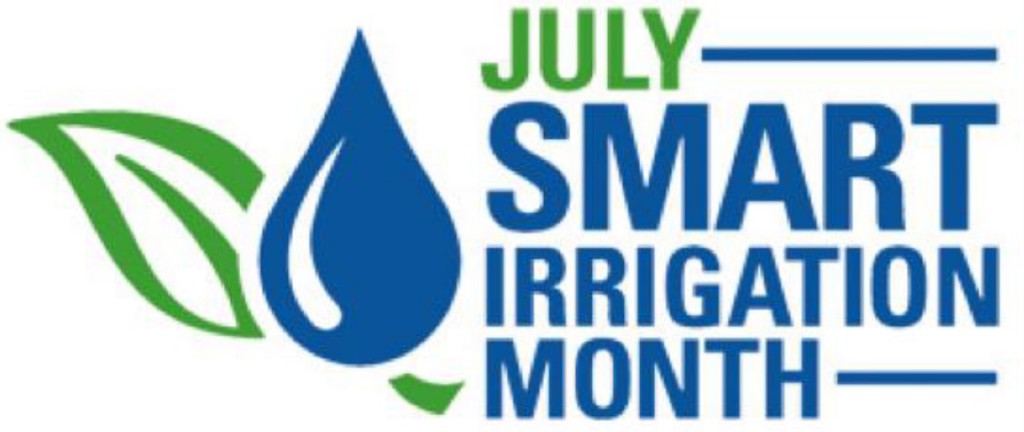1. Quality Soil
It might seem odd, but looking at your soil is one of the best places you can start for smart irrigation. That’s because the more moisture the soil can hold, the less frequently watering is needed.
AquaSmart Pro is a product that can actually increase the moisture-holding capacity of soil. Just a small amount of this super-absorbent polymer-coated sand is worked into soil—about four tablespoons per gallon of soil, or 40 pounds per 1,000 square feet. AquaSmart particles absorb water, then release it back out to the soil and plant roots over time. AquaSmart keeps new sod and plantings from drying out, and can treat dry spots in turf. It’s especially useful for areas with watering restrictions and drought. AquaSmart Pro can be purchased through JB Irrigation’s parts department.
2. Water Efficient Sprinklers and Nozzles
These types of sprinklers and nozzles are primarily designed to produce larger drops of water or streams that are more resistant to wind and that soak into the soil, preventing overwatering. They can typically reduce water use by 30 percent, compared to traditional spray nozzles. Look for low-precipitation rates (1 inch or less per minute). Popular models include Hunter’s MP Rotators, Rain Bird’s HE-VAN or R-VAN which all are available from JB Irrigation’s parts department or professionally installed on your site by JB Irrigation’s Service Technicians.
3. Drip Irrigation
Drip irrigation is a great choice for shrubs, trees and others plants. 90-100 percent of the water applied by drip systems goes where it’s needed: the roots! With the right design and quality products, drip irrigation can be a low maintenance and water saving option. Look to JB Irrigation for drip tubing and other drip irrigation parts, which are made from the highest quality plastics for improved durability. Available for purchase at our parts store of professionally installed by JB Irrigation Service Technicians at your home or business.
4. Rain and Temperature Sensors
Avoid watering during a rainstorm, or when the ground is already soaked! A rain sensor will detect rainfall. Some rain-temperature sensors will also turn on or shut off your irrigation system as temps increase or decrease.
If you have a rain sensor and it is more than a few years old you should consider upgrading to a new one. The new sensors we sell today use the latest technology available to insure that you don’t water when it’s not needed.
Conventional wired sensor or “go wireless”? It all depends on the specific site needs. Conventional wired sensors are cheaper. Wired units restrict where or how far from the controller the sensor can be located. Also running the wires can be difficult and time consuming. The wireless units are more money but offer flexibility of locating just about anywhere on a typical site. Wireless units offer easy and speedy installation. Regardless of wired or wireless, additional water savings can be achieved by having a new rain sensor. JB Irrigation stocks both wired and wireless sensors at our parts store and on all our service trucks.
5. Smart Controller
A smart controller is the brain for your smart irrigation system—it uses weather data to give your plants the right amount of water.
Using real-time data from sensors on your site, and historical weather data for your area, a smart controller will adjust watering schedules to the weather and season- on a daily basis.
Ask a JB Irrigation service professional about our smart controllers. We stock WaterSense labeled smart controllers which are proven water-savers by the EPA.
Save on Smart Irrigation
Be sure to check with your water provider for smart irrigation rebates. Many cities, MUD districts, and water companies offer rebates on smart controllers, water-efficient sprinkler nozzles and more. Call the phone number on your water bill and ask them if rebates are available in your area.
 In the Houston, Texas area we have to worry only about exposed irrigation system piping and components. The underground piping is usually not affected by our kind of freezing weather because the soil acts as an insulator. The temperature of the soil your irrigation system is buried in typically stays above freezing. It is however VERY important to protect exposed pipes and sprinkler system components from freeze. System protection can be achieved by insulating a sprinkler system, draining a sprinkler system, checking o-rings and seals, electrical and more.
In the Houston, Texas area we have to worry only about exposed irrigation system piping and components. The underground piping is usually not affected by our kind of freezing weather because the soil acts as an insulator. The temperature of the soil your irrigation system is buried in typically stays above freezing. It is however VERY important to protect exposed pipes and sprinkler system components from freeze. System protection can be achieved by insulating a sprinkler system, draining a sprinkler system, checking o-rings and seals, electrical and more.

